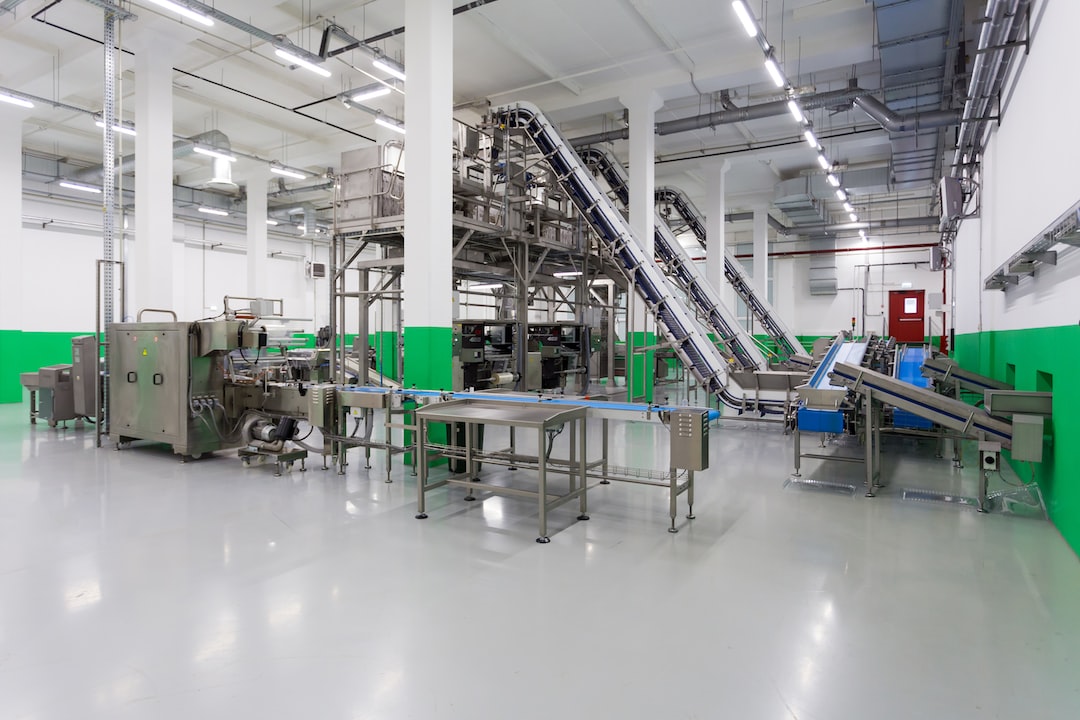The Future of Manufacturing: Trends and Predictions
Manufacturing has come a long way since the Industrial Revolution, and it continues to evolve at an astonishing pace. With the advent of new technologies and the constant drive for innovation, the future of manufacturing holds immense potential. In this blog post, we will explore some of the emerging trends and make predictions about what lies ahead for the manufacturing industry.
1. Industry 4.0: The Fourth Industrial Revolution
Industry 4.0, also known as the Fourth Industrial Revolution, is a term that encapsulates the integration of digital technologies into the manufacturing sector. This entails the use of automation, artificial intelligence (AI), internet of things (IoT), and big data analytics to optimize production processes and improve efficiency. As this revolution unfolds, we can expect to see smart factories equipped with interconnected machines, autonomous robotics, and data-driven decision-making becoming the norm.
2. Additive Manufacturing and 3D Printing
Additive manufacturing, commonly known as 3D printing, is revolutionizing the manufacturing landscape. This technology allows for the creation of three-dimensional objects by layering materials, thereby eliminating the need for traditional manufacturing processes. It offers flexibility in design, reduces waste, and allows rapid prototyping. In the future, 3D printing is likely to become more widespread and accessible, enabling customization on a large scale and disrupting traditional supply chains.
3. Green Manufacturing and Sustainability
With the growing concern for the environment, manufacturing is undergoing a shift towards sustainability. Green manufacturing involves adopting environmentally friendly practices, such as energy-efficient processes, recyclable materials, and waste reduction. This trend is driven not only by regulations but also by consumer demand for eco-friendly products. The future of manufacturing will undoubtedly center around sustainable practices to minimize environmental impact and foster sustainability.
4. Artificial Intelligence and Machine Learning
Artificial intelligence (AI) and machine learning have already made their mark on various industries, and manufacturing is no exception. AI-powered systems can automate complex tasks, optimize production flow, and identify patterns to improve efficiency and quality. Machine learning algorithms help in predictive maintenance, enabling proactive equipment maintenance and reducing downtime. As AI technology advances, it will continue to play a vital role in shaping the future of manufacturing.
5. Robotics and Automation
Robots have long been employed in manufacturing to perform repetitive or dangerous tasks. However, with advancements in robotics technology, we are witnessing a shift towards more versatile and collaborative robots. These robots can work alongside humans, assisting in assembly and enhancing production capabilities. Automation, coupled with robotics, will increase productivity, reduce error rates, and enable cost-effective manufacturing processes.
6. Internet of Things (IoT)
The Internet of Things (IoT) is the network of interconnected devices that can exchange data and communicate with each other. In manufacturing, IoT enables real-time tracking and monitoring of equipment, inventory, and supply chains. It facilitates predictive maintenance, provides valuable insights into production processes, and enhances overall efficiency. As more devices become IoT-enabled, manufacturing plants will become highly connected, enabling seamless communication and data exchange.
7. Supply Chain Integration and Resilience
The COVID-19 pandemic exposed vulnerabilities in global supply chains, prompting a reevaluation of manufacturing strategies. In the future, supply chain integration and resilience will be key priorities. Manufacturers will focus on building flexibility and agility, adopting local sourcing, and diversifying suppliers to mitigate risks. Technologies such as blockchain will play a crucial role in enhancing transparency, traceability, and trust in supply chains.
8. Skilled Workforce and Digital Transformation
As manufacturing becomes more technologically advanced, there is a growing need for a skilled workforce to operate and maintain these systems. The future of manufacturing will require individuals with expertise in data science, AI, robotics, and other emerging technologies. To bridge the skills gap, companies will invest in training programs and collaboration with educational institutions. Additionally, digital transformation will become a necessary step for manufacturers to stay competitive in the evolving landscape.
In conclusion, the future of manufacturing promises exciting developments and innovations. Industry 4.0, additive manufacturing, sustainability, AI, robotics, IoT, resilient supply chains, and a skilled workforce are some of the trends and predictions that will shape the manufacturing landscape. Manufacturers must adapt and embrace these advancements to stay at the forefront of the rapidly evolving industry. The world of manufacturing is on the brink of a technological revolution, and the future looks incredibly promising.

